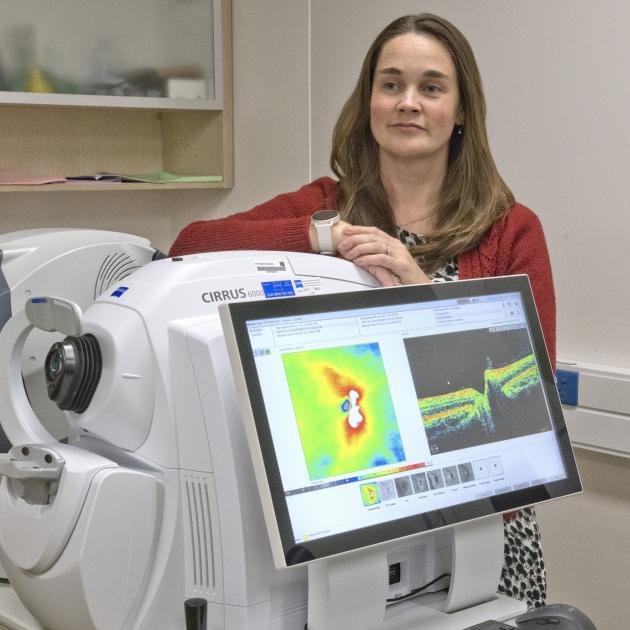
Researchers at the University of Otago Dunedin Multidisciplinary Health and Development Study have discovered the blood vessels at the back of the eye — called retinal microvasculature — can show early signs someone is at risk of developing dementia.
Co-lead author and University of Otago psychology researcher Dr Ashleigh Barrett-Young said the findings were linked to previous work by the research team, and "put together pieces of a puzzle" when it came to recognising early signs of dementia.
"It’s reflecting the current state of the retina, and that is what might give us an indication of what might be happening in the future.
"So the idea is that, because the retina is connected to the brain, if we see retinal thinning or certain changes in the retina, it might reflect changes that are also happening in the brain at the same time.
"And some of those changes happen before symptoms of dementia kick in."
Published in the Journal of Alzheimer’s Disease, researchers used data from eye scans from the Dunedin Study’s Age 45 Assessment.
She said the scans revealed narrower arterioles (the small blood vessels that carry blood away from the heart) and wider avenues (the smallest veins which receive blood from capillaries) and thinner retinal nerve fibre layers (which carry visual signals from the retina to the brain), which were all associated with greater dementia risk.
Dr Barrett-Young said this was unexpected.
"I was surprised that venules were associated with so many different domains of Alzheimer’s disease.
"That suggests that it might be a particularly useful target for assessing dementia risk."
The retinas of people with diabetes or certain other cardiovascular or metabolic conditions, may have similar symptoms affecting their retinas, and in turn, their vision.
However, the new research did not mean people with diabetes or eye conditions were more prone to dementia, Dr Barrett-Young said.
She reminded people not to panic.
"The idea is that it’s changes that are happening in the brain that are reflected in the eye, rather than changes in the eye that are reflected in the brain.
"So, just because it’s happening in the eye, it doesn’t mean to say it’s going to happen to the brain — what’s happening in the brain is affecting the eye.
"Aside from the fact that if you have diabetes or certain other cardiovascular or metabolic conditions, you might have a lot of the same risk factors as people with dementia, but if you did have diabetic retinopathy or any other eye disease, that doesn’t necessarily mean that stuff’s happening in your brain too."
She said the findings were too premature to be applied in the real world yet, but research was continuing around the world because treatments for Alzheimer’s and some other forms of dementia may be most effective if they were started early in the disease course.
Knowing who would benefit from early treatment was crucial, but it was difficult to do with present testing methods, which she hoped would improve in the future.
She said cognitive tests were not sensitive enough in the early stages, and a person may not be experiencing any decline yet, while other tests like MRI and PET scanning were expensive and not widely available.
"This research is still in an early stage, and we can’t predict your future looking at an eye scan," she said.
"Hopefully, one day we’ll be able to use AI methods on eye scans to give you an indication of your brain health, but we’re not there yet."
She hoped the research would one day enable medical specialists to detect dementia early, and give patients treatment that may delay onset or prevent the disease.












